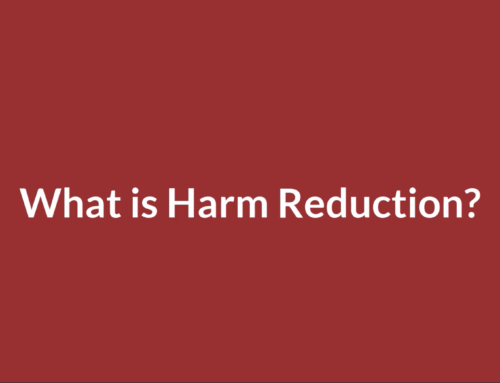 As we age, there are many chronic conditions that we become more susceptible to such as diabetes, heart disease, cancer, arthritis and more. What is surprising is that substance abuse is also a fast-growing concern among older adults, though the problem is still largely invisible to the health care industry.
As we age, there are many chronic conditions that we become more susceptible to such as diabetes, heart disease, cancer, arthritis and more. What is surprising is that substance abuse is also a fast-growing concern among older adults, though the problem is still largely invisible to the health care industry.
From 1997 to 2004, 14.5% of drinkers 60 years of age and older were consuming alcohol above the recommended limit set by the National Institute on Alcohol Abuse and Alcoholism [1]. When factoring in chronic conditions, 53.3% of persons in the U.S. over 65 years of age who consume alcohol are consuming at an increasingly dangerous level [2].
It is projected that the rate of all substance abuse in persons over the age of 50 will more than double from 2.8 million in 2006, reaching 5.7 million by 2020 [3].
Causes of Substance Abuse in the Elderly
There are many reasons cited by older adults for substance dependency and abuse [4], included but not limited to:
- Retirement
- Death of a loved one or pet
- Financial stresses
- Boredom
- Loneliness
- Placement in a nursing home
- Sleep issues
- Familial conflict
- Depressive disorders and other mental health issues
- Medical conditions (chronic and non-chronic)
- Medical procedures and recovery
According to an article in The New England Journal of Medicine titled “Substance-Use Disorders in Later Life”, older adults with alcohol abuse issues fall into two categories: “late-onset” and “early-onset”. Each set has its own specific demographics, causation factors and reactions to dealing with alcohol abuse. Understanding these two groups is essential to understanding how alcoholism and substance abuse in the elderly functions.
Early-onset are older adults that have been drinking for many years prior to experiencing the triggers that accompany older adulthood, as mentioned above. Two-thirds of older adults identified as abusing alcohol are categorized as early-onset.
Late-onset are older adults that have recently experienced a life event that has triggered alcohol misuse, such as depression. One-third of older adults identified as abusing alcohol are categorized as late-onset and are more likely to be women.
It was found that early-onset older adult drinkers consumed more alcohol than late-onset older adult drinkers. Possibly to be expected, early-onset drinkers reported having had more negative life experiences than late-onset drinkers.
It is important that alcoholism and substance abuse among older adults be recognized as its own specific issue, in order to be understood and treated effectively. It’s not uncommon that friends, family, assisted-living staff and even primary care physicians overlook the signs and symptoms of substance abuse in the elderly.
Symptoms of Substance Abuse in the Elderly
Substance abuse in older adults is particularly insidious because it can be difficult to identify. Some common, but overlooked symptoms of substance abuse in older adults includes:
- Loss of hygiene
- Unexplained injuries or bruises
- An increase of fall incidents
- Declining interest in activity
- Declining interest in personal relationships
- Change in eating habits
- Depression and/or anxiety
- Change in sleep patterns
Challenges in Identifying Elderly Substance Abuse
It is unlikely that an older adult’s primary care provider will initiates a conversation about substance abuse; the chance even declines as that patient ages. It’s also not uncommon that a family member will not recognize symptoms of substance abuse in an older adult.
In older adults, the symptoms of substance abuse can be masked by coexisting medical conditions, as well as by the effects of prescription medications. What would otherwise be recognized as substance abuse symptoms in a younger person might be attributed to:
- Cognitive impairment due to old age
- The effects of or a reaction to prescription medicines
- Other ailments with similar symptoms (ex. Dementia)
In addition, older adults may be more likely or more adept at hiding their substance abuse than their younger counterparts. Persons currently categorized as older adults are also much more affected by the once and still held stigma of substance abuse. Compounded with the older adults leading more isolated lives, the lack of interaction with others can both conceal and exacerbate the extent of the substance abuse.
Due to the current lack of dialog between doctors and older adults, the Center for Substance Abuse Treatment proposed that all adults over the age of 60 be administered a substance abuse and alcohol disorder screening at routine medical visits [5]. While a main motivation of this Treatment Improvement Protocol (TIP) is to help physicians identify and provide recovery care for older adults, another benefit is to educate older adults on what substance abuse means. Many older adults are not aware of how destructive alcohol and illicit substances can be to their physiology. An older person’s physiology reacts with increased sensitivity compared to their younger adult counterparts, heightening the risk of experiencing the negative and destructive effects of alcohol and illicit substances.
Challenges in Treating Addiction in the Elderly
Not all older adults will have the same resistance to addressing their possible substance abuse issues, but it is important to remember that because of their age, they may attach more stigma to the subject than younger adults. For this and many other reasons, approaching a discussion about treatment with an older adult should be approached in a way specific to that adult and their situation.
Speaking with an Older Adult About Their Substance Abuse
 Some tips for approaching the subject of the elderly and substance abuse with an older adult include:
Some tips for approaching the subject of the elderly and substance abuse with an older adult include:
- Approach your loved one with love and respect. Due to the subject matter, it is easy for someone being confronted with such a difficult topic to feel attacked, become defensive, and therefore not be responsive to help. You will need to express hard truths and observations about how substance abuse is affecting their lives – declining health, injuries, financial concerns – but they will be much more responsive if sharing your concerns comes from a place of love.
- Don’t approach your loved one while they are feeling the effects of alcohol – If they are actively inebriated, they will be less likely to want to engage in a discussion about their substance abuse. Conversely, approaching your loved one while they are experiencing the negative effects of their substance use, such as being hungover, in withdrawal or dealing with a substance abuse related injury, may be an opportune time to approach them. Take care not to blame them while they are in a compromised position, but approach with care and understanding.
- Don’t use labels like addict, alcoholic, etc. because they promote stigma and shame in people that are resistant to confronting the uncomfortable truth of the substance abuse in their lives. No one reacts well to being judged and labelled. People dealing with being elderly and substance abuse issues are already professionals at negatively labeling themselves.
- Invite your loved one’s participation in the conversation. Ask them what their ideal self would look like and encourage them to envision what it would take to make that happen. Your loved one knows that substance abuse doesn’t fit into a healthy plan, but they might not feel like they can tackle such a monumental change, especially later in life. By engaging in a dialog about how all the positive things they want are attainable, they may feel more encouraged to believe it’s possible to achieve their goals.
Substance Abuse Treatments for the Elderly
When it comes to the elderly and substance abuse recovery, the good news is that older adults experience more success in recovery than their younger counterparts. According to the American Journal of Geriatric Psychiatry, older age predicts better adherence and drinking outcomes compared to younger adults.
Treatment and recovery for older adults have additional requirements to address age related issues, such as:
- Limited mobility that decreases a person’s ability to travel to recovery/rehabilitation centers for outpatient treatments. For patients requiring in-patient services, limited mobility concerns may require that additional accommodations be made that may interfere with treatment if the facility is not prepared.
- Chronic conditions that may interfere with a recovery program’s normal treatment protocol.
- Prescription medications that may interfere with a recovery program’s normal treatment protocol.
- Social Isolation that may hinder an older adult’s recovery progress due to a less available support network.
As baby boomers are moving into older adulthood, there are positive moves being made to develop treatment and recovery options specific to older adults. Many facilities are now providing specialized programs just for older adults. Many of these treatments are also dual-diagnosis treatments, which treat substance abuse and mental illness simultaneously because the relationship between the two are recognized as intertwined.
Many therapies are also employed as part of a recovery program, including withdrawal management, cognitive-behavioral therapy, individual counseling, group counseling, behavioral services, educational services and much more.
It’s Never Too Late for Recovery
Whether you’re an older adult dealing with substance abuse or have a loved one struggling, there are resources that can create real, positive change. Age does not have to be a barrier to recovery – in fact, it is a resource that can be drawn from to increase an older adult’s success in treatment and recovery. For more information about treatment and recovery, please visit Volunteers of America Behavioral Health Services.
Sources:
[1] Trends in Alcohol Consumption Among Older Americans: National Health Interview Surveys, 1997 to 2014
[2] Substance-Use Disorders in Later Life
[3] Substance use disorder among older adults in the United States in 2020
[4] Substance misuse and older people – Our Invisible Addicts
[5] Correlates of Alcohol-Related Discussions Between Older Adults and Their Physicians


